第92章 XII(7)
I must avail myself of this opportunity to say a few words to my distant friends who take interest enough in my writings, early or recent, to wish to enter into communication with me by letter, or to keep up a communication already begun. I have given notice in print that the letters, books, and manuscripts which I receive by mail are so numerous that if I undertook to read and answer them all I should have little time for anything else. I have for some years depended on the assistance of a secretary, but our joint efforts have proved unable, of late, to keep down the accumulations which come in with every mail. So many of the letters I receive are of a pleasant character that it is hard to let them go unacknowledged. The extreme friendliness which pervades many of them gives them a value which I rate very highly. When large numbers of strangers insist on claiming one as a friend, on the strength of what he has written, it tends to make him think of himself somewhat indulgently. It is the most natural thing in the world to want to give expression to the feeling the loving messages from far-off unknown friends must excite. Many a day has had its best working hours broken into, spoiled for all literary work, by the labor of answering correspondents whose good opinion it is gratifying to have called forth, but who were unconsciously laying a new burden on shoulders already aching. I know too well that what I say will not reach the eyes of many who might possibly take a hint from it. Still I must keep repeating it before breaking off suddenly and leaving whole piles of letters unanswered. I have been very heavily handicapped for many years. It is partly my own fault. From what my correspondents tell me, I must infer that I have established a dangerous reputation for willingness to answer all sorts of letters. They come with such insinuating humility, --they cannot bear to intrude upon my time, they know that I have a great many calls upon it,--and incontinently proceed to lay their additional weight on the load which is breaking my back.
The hypocrisy of kind-hearted people is one of the most painful exhibitions of human weakness. It has occurred to me that it might be profitable to reproduce some of my unwritten answers to correspondents. If those which were actually written and sent were to be printed in parallel columns with those mentally formed but not written out responses and comments, the reader would get some idea of the internal conflicts an honest and not unamiable person has to go through, when he finds himself driven to the wall by a correspondence which is draining his vocabulary to find expressions that sound as agreeably, and signify as little, as the phrases used by a diplomatist in closing an official communication.
No. 1. Want my autograph, do you? And don't know how to spell my name. An a for an e in my middle name. Leave out the l in my last name. Do you know how people hate to have their names misspelled?
What do you suppose are the sentiments entertained by the Thompsons with a p towards those who address them in writing as Thomson?
No. 2. Think the lines you mention are by far the best I ever wrote, hey? Well, I didn't write those lines. What is more, I think they are as detestable a string of rhymes as I could wish my worst enemy had written. A very pleasant frame of mind I am in for writing a letter, after reading yours!
No. 3. I am glad to hear that my namesake, whom I never saw and never expect to see, has cut another tooth; but why write four pages on the strength of that domestic occurrence?
No. 4. You wish to correct an error in my Broomstick poem, do you?
You give me to understand that Wilmington is not in Essex County, but in Middlesex. Very well; but are they separated by running water?
Because if they are not, what could hinder a witch from crossing the line that separates Wilmington from Andover, I should like to know?
I never meant to imply that the witches made no excursions beyond the district which was more especially their seat of operations.
As I come towards the end of this task which I had set myself, I wish, of course, that I could have performed it more to my own satisfaction and that of my readers. This is a feeling which almost every one must have at the conclusion of any work he has undertaken.